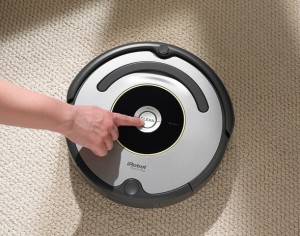It is impressive to see how the internet, computers, and software are entering every aspect of our lives, automating and simplifying daily tasks like never before. For more than 100 years, technology has been marching steadily into home appliances at every level, from information processing to electronics and production.
However, recently the use of intelligent onboard AI software capable of analyzing, scheduling, and triggering tasks automatically has taken off in home electronics and appliances.
From automatic vacuum cleaners to robotic pool cleaners, coffee makers, and bread makers, artificial intelligence (AI) is applied to almost every household chore. One of the greatest side-benefits of the AI appliance revolution is in energy efficiency.
Are You Ready For An Intelligent & Energy-efficient Home?
Here are examples of modern home devices that have been incorporating onboard AI software to produce energy efficiency advantages.
1. Robotic Pool Cleaners
Swimming pool owners no longer need to pay pool cleaner wages – or waste an hour a day sweeping pool steps. The best robotic pool cleaners like the Dolphin Nautilus and Aquabot Elite are designed to effectively clean swimming pool floors, walls, and cloves using sophisticated AI algorithms that reduce energy and spend less time cleaning.

Dolphin Nautilus Robotic pool cleaner in action
The smart thing about the latest models is that cleaning is automated and can be scheduled to happen after specified periods of time to ensure your pool is ever clean.
The newest systems read their environment and eliminate redundant cleaning paths, lowering the time it takes to clean your pool – and they save a ton of energy.
2. Robotic Vacuum Cleaners
Like robotic pool cleaners, robotic home vacuums are programmed to utilize a combination of cleaning procedures and special cleaning features such as spinning brushes.

iRobot Roomba
They can be set to perform cleaning at given time intervals in the absence of anyone. Robovacs sometimes also incorporate data from other systems such as security cameras and intercoms. The iRobot Roomba vacuum cleaner is a good example.
3. Washers And Dryers
Unlike traditional washers and dryers that need you to monitor and listen to beeps to remember to switch the load from washing machine to dryer, today’s washer-dryer combos are mostly self-guided. Today’s cleaning machines have intelligent systems that can perform rinsing, washing, and drying without being monitored.
They also have delay features that can be used to schedule tasks so that cleaning is completed just in time. The advantage of these appliances is that tasks are performed even in your absence without any problems.

Bosch WKD28350GB automatic washer/dryer
There are several intelligent dryers produced by manufacturers today. A good example is the Bosch WKD28350GB automatic washer/dryer, which features foam detection, safeguard monitoring, Aquatronic washing, and begin-wash delay, among other things. Such dryers are excellent at conserving energy because they let the clothes tell them when to finish – rather than a timer.
4. Smart Refrigerators

Samsung’s RH2777AT HomePAD
Also known as “internet refrigerators,” these units are designed with state of the art technology to replenish themselves with food products. A smart fridge uses a barcode recognition system (or RFID scanner) that scans and keeps records of items being stored in it.
The fridge also keeps track of restocking patterns and notifies users whenever there is an item that needs replenishing. Some examples include Samsung’s RH2777AT HomePAD and Zipel e-Diary, LG’s Digital DIOS, GR-D267DTU, and ThinQ LFX31995ST.
6. Outdoor Grills
There are several automated grills and smart concept grills on the market today. These new designs feature software systems that access internet databases to identify appropriate recipes, including cooking methods and timing.
Intelligently connected grills have preprogrammed systems that eliminate guesswork and use great recipes to produce the best meal at the lowest possible energy use.
For instance, the Lynx concept grill allows activation via voice instruction and has many other incredible capabilities.
Conclusion
The use of smart applications and onboard software has resulted in higher energy efficiency, more convenience, and improved productivity/performance.
It is important to purchase these appliances from reputable dealers because the added complexity comes with a support cost. Check out the fine print from the warranty papers. Intelligent devices are here to stay and promise to simplify our work and eliminate energy waste on every home task.

